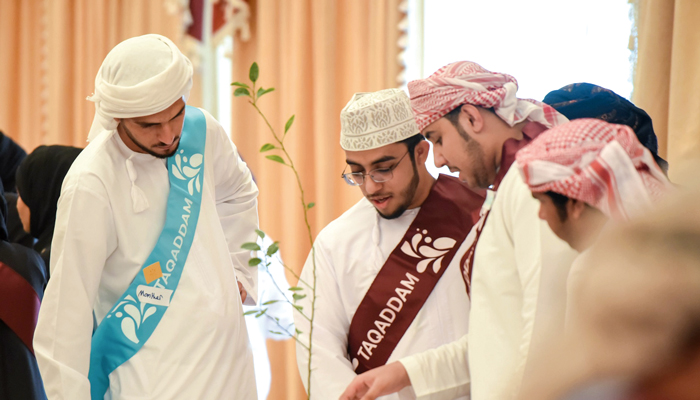
A new cohort of bright young high school and college graduates will soon be looking to the job market for career opportunities.
However, they face considerable hurdles. First, across the Middle East, there is chronic youth unemployment. Finding a job, let alone a satisfying career choice, is not easy.
Secondly, they will face potential employers who will question whether these graduates really have the skills needed to compete in the modern marketplace during an era of change and disruption. That’s because the employment landscape worldwide is about to change forever.
Technologies such as artificial intelligence, automation and 3D printing will wipe out whole sectors of employment, but create rich opportunities elsewhere. The jobs of current students in 20 years may not have even been imagined today.
Increasingly, it seems the future will belong to those with a portfolio of flexible professional skills that will sustain them through a variety of career changes. These include language ability, especially in Arabic and English; creativity and complex problem solving; and skills in negotiation, presentation and team working.
In the Taqaddam programme, offered by two colleges in Muscat, HSBC and the British Council, they have identified new teaching approaches to help young Omanis acquire such skills, equipping them for an unknown professional future.
For governments from Morocco to the Gulf, youth unemployment remains a serious problem. One in three young people are out of work, breeding disillusionment and wasting potential. Five million more appear on the job market every year. It seems that no matter how many jobs are created, more are needed.
Oman’s government has recently responded with new initiatives, including a plan to create 25,000 jobs for young Omanis and a temporary suspension on employing foreigners in some economic sectors. Such steps have been welcomed here, but a long-term problem exists. A new British Council report highlighted a mismatch between what is being taught in schools and universities across the region, and what is required by employers.
**media[926218]**
In a survey of more than 500 business leaders in Dubai, where many leading multi-nationals have their regional headquarters, the message was loud and clear.
Almost unanimously, they called for new arrivals in the workplace to have better portable “soft” skills — problem solving, critical thinking, creativity, people management and the ability to work with others. Communication, especially in English, is essential.
At HSBC and the British Council, they hope that Taqaddam, which means “moving forward” in Arabic, is addressing that issue.
The programme is currently offered in six MENA countries. In the three years since it started, it has reached 3,000 students in 150 schools.
In Oman, they offer Taqaddam in two Muscat higher education institutes, Caledonian College and the Higher College of Technology.
The 14-week course is delivered in English to 17-18 year olds and features weekly classes, two intensive workshops and a gaming-style online teaching format designed to appeal to a tech-savvy generation.
At the Higher College, Taqaddam is an extra-curricular activity, but at Caledonian College, the programme has been integrated into the full curriculum.
Taqaddam encourages students to cultivate key five character traits — Spark, Purpose, Confidence, Mettle and Positive Emotions.
**media[926219]**
Spark requires inspiration, creativity and passion. Purpose needs a strong belief that life and activity are meaningful and worthwhile. Confidence means believing in ourselves, while Mettle is showing resilience and determination despite challenges. Positive Emotions encourages self-reflection and managing our feelings.
The course is designed by the Goodall Foundation, UK education experts, who believe in developing the character of young people through self-sufficiency, collaboration and innovation.
The teachers who volunteer to teach the course are a key part of its success. Their determination to improve the life chances of their students has helped Taqaddam achieve recognition across the region, including a recent International Business Excellence Award for Corporate Social Responsibility.
Every year, Taqaddam culminates with the Make It Happen event. Hundreds of students gather to propose their solutions to social issues in their own communities — a sales pitch — requiring all their Taqaddam skills.
There are winners and prizes, but in reality, everyone in the room is a winner, every year. Taqaddam graduates constantly describe how the programme helped their confidence, developed their teamwork and taught them the value of organisation.